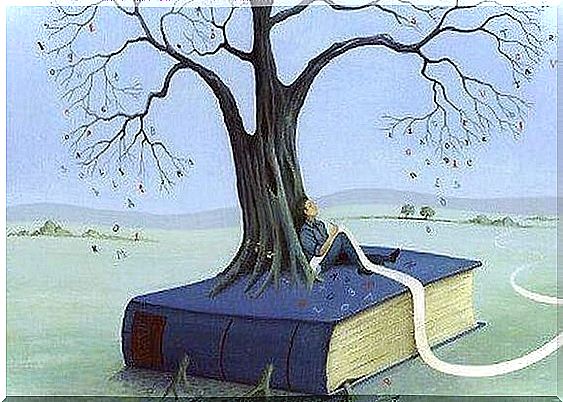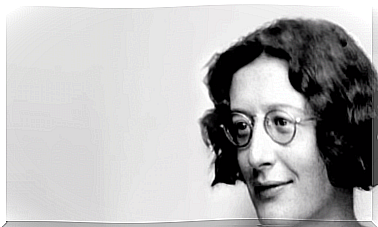I Am My Own Book: I Rewrite Myself, I Underline Myself, I Add Pages To Myself …

We are all our own book: we have the ability to rewrite ourselves , to underline our identity and even to tear off those pages that do not work, that hurt and that give unnecessary weight to the novel of our life. Likewise, let us remember to leave a last blank page, there where the opportunity to start new chapters always opens …
Borges used to say that there are those who cannot imagine a world without birds, there are those who cannot imagine a world without water and those who, indeed, cannot conceive of a world without books. Now, something that each and every one of the novels we have read undoubtedly teaches us, and that in some way also makes up the substratum of our personality, is that we are all stories. To exist is to be part of a magic fabric where we become authors of a plot that happens and is written every day.
However, and here comes one of our most obvious problems, is that we often come to think that we are subject to a single narrative line, to the classic structure of an introduction, a middle and an end. Nobody has told us that in reality the book of our lives does not always have a logical order, there are chapters that are left half, there are paragraphs that we must erase to rewrite and there are many pages that it is convenient to eliminate so that the plot makes more sense.
On the other hand, something that we should take into account is that the book of our life only has a complete meaning for a single person: ourselves. Every experience, every encounter, every decision made, every sensation, caress, chill or every coincidence experienced has its own meaning for ourselves that no one else usually understands. In our own chaos is logic, in our own book of messy chapters and continual reboots is the best novel ever written: ours.

When we have no choice but to rewrite the book of our life
Joan Didion is a well-known writer who many often call “the white whale of the American essay. ” Today, she is 82 years old and is possibly one of the authors who used writing to achieve something as exasperating as it was interesting at the same time: to bring her loved ones back to life. In December 2003 she and her husband returned from the hospital after seeing their sick daughter when Didion’s husband, the writer John Gregory Dunne, suddenly passed away in his living room.
Only a few months later, his daughter would follow him after not being able to overcome pneumonia. After that, and for 88 days, Joan Didion wrote non-stop and frantically what would become her best-known book: “The Year of Magical Thought” . Both psychiatrists and anthropologists define “magical thinking” as that mental attitude where people come to believe that their thoughts can influence the development of certain events. Joan Didion hoped that her family would be with her again, that they would come back to life …
None of that happened, however, after the publication of that book, Didion understood that it was time to start a new chapter in his life: the real one. Writing had served as a catharsis, as a means from which to channel the grief. However, life kept moving, out of tune and cold moments due to so many absences, but imposing on her the vital obligation to continue breathing, to continue advancing in those new pages where, according to her, “find the rhythm of existence in the same way that I found it in the words and the sentences he wrote ”.

Heal yesterday to write better chapters
The first step that we will take in this inner and delicate process is to review our “vital chapters”. We must be able to make a real and objective assessment of the thread of our life, of that cycle that goes from childhood to the present moment. It is important that in this first stage we avoid looking for or remembering those responsible for each of the things that have happened to us, we put the culprits aside. We must focus only on ourselves, on how we see ourselves in each of these stages.
- Healing In this second stage we will assume that changing the past is impossible, but what we can change is the attitude we have towards those moments of yesterday. It is time to cut the bond of pain, to assume, accept, forgive, and above all, heal our present “I” from the wounds of the past.
The third step on this journey is undoubtedly the most special: we must add blank pages to the book of our life. Something like this can be achieved in many different ways, because we are talking about reboots, the opportunity to experiment and allow ourselves new things: new friends, new projects, new environments, hobbies …
As we get older and mature, we realize something very important: that new beginnings are a way to stay united to life, and above all, to embrace a more real, more tangible happiness and above all, according to our needs. So let us have enough courage to write the book we want, the one that identifies us.
Images courtesy of SIUM and Soizick Meister









